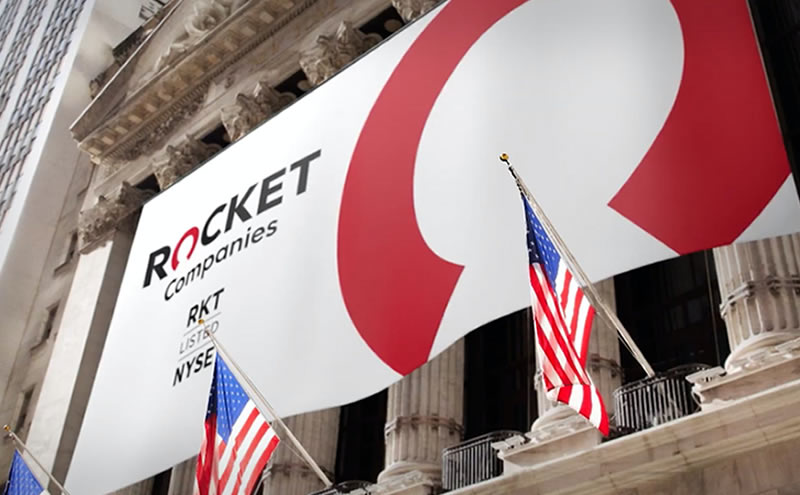Most people have probably heard of Rocket Companies in some capacity, whether it is through having a mortgage or some of its widely played advertisements, the Michigan based company has long been associated with the mortgage industry. As a publicly traded company, Rocket is definitely new to the game though as the IPO hit Wall Street at the beginning of August. It has been a tumultuous first month for Rocket as the excitement over a steady business combined with a cheap sticker price, vaulted the stock up over 70% from its IPO debut. Since then it has been all downhill for Rocket, even after a tremendous quarterly earnings call that saw the company smash Wall Street estimates.

Rocket Companies brought in $72 billion in mortgages in the second quarter of 2020, an impressive 40% higher than the first quarter and over 125% higher year-over-year. Even better was Rocket earnings $3.4 billion in net income resulting in a near 5% profit margin.
Revenues demolished Wall Street estimates as the company reported $5.4 billion in revenues or an increase of 437% from the same quarter last year. Adjusted earnings for the quarter came in at a resounding $1.44 per share, smashing estimates of $0.88 per share. Everything about Rocket’s report was music to investor’s ears, and yet, since the earnings call was announced, the stock is down nearly 30%.
There are a couple of reasons for Rocket’s sudden plunge. First, the earnings call was unfortunately poorly timed as it coincided with the largest market correction since early March. The great tech selloff dragged the broader markets down with it and shares of Rocket continued to drop throughout the week, to no fault of its own. Second, there were some analyst downgrades for the stock despite its strong quarter, on fears of future business slowdown after the coronavirus quarantine has ended. The Susquehanna analyst also reiterated that banks will be stepping up their competition to Rocket Companies. These banks view mortgages as “a key customer-acquisition tool” and a way in which they can broaden their customer base by offering other services and products that traditional mortgage firms like Rocket cannot match. The new price target for Susquehanna was set at $20 per share.
Some damning news for Rocket Companies as investors continued to be interested in the low levels the stock is currently trading at. Analysts seem to be mixed on Rocket as upgrades and downgrades are all over the map ranging from the $20 provided by Susquehanna to a $32 price target from BofA Securities, with a strong buy rating. The popular argument for Rocket is that it can be seen as more of a Fintech company than a traditional mortgage firm, a rhetoric that some analysts buy more than others. Investors looking to get in on the ground floor may want to hold off until the next earnings call, to see if Rocket’s second quarter report was more of the exception or the rule.

















Rate this article